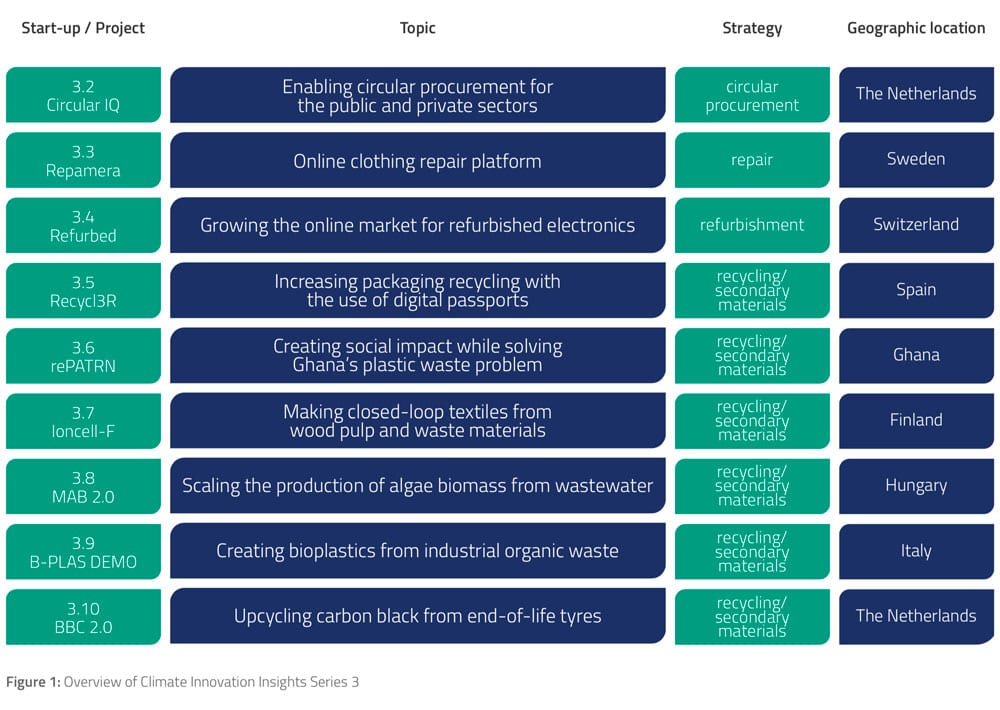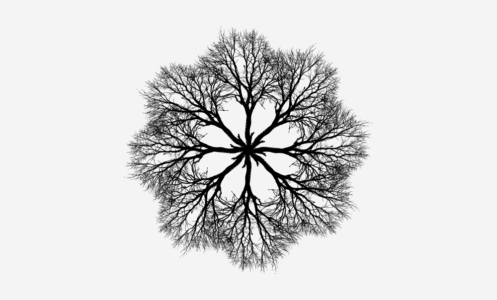Transforming to Net-Zero Economies—Shaping new Circular Business Models for Systems Innovation
EIT Climate-KIC Climate Innovation Insights Series 3, co-edited by Geraldine Brennan
July 2019
Climate Innovation Insights are a mix of case studies of recent innovation experiences and analytical pieces that draw lessons from diverse sources to share the strategies, experiences and lessons learnt from pioneering projects and start-ups in the EIT Climate-KIC community. The business models presented in these series come from a multitude of sectors, geographic and political contexts and employ a variety of circular strategies.
The third collection, co-edited by Geraldine Brennan, reflects the recognition that the circular economy agenda and low carbon agendas are interlinked and mutually reinforcing—making scaling up the circular economy an urgent imperative (see also Circle Economy, 2019).
Launched at the 2019 World Circular Economy Forum, it builds on Climate Innovation Insights Series 2, which put a light on Cross-Sector Collaboration for the Circular Economy.
This new Series, Shaping New Circular Business Models for Systems Innovation, highlights that innovative business models and circular solutions alone cannot transform whole production and consumption systems; as there are various other forces at play that influence the market take-up of circular innovations. This is because the pace of diffusion and adoption of innovation is influenced by key system elements, such as: Policy, Skills, Behaviour, Market Structures, Information Flows, Organisational Governance and Finance. Innovation needs to happen on all these fronts (‘systems innovation’) in order to achieve substantial system transformation (EIT Climate-KIC, 2019).
Four key cross-cutting themes emerged from Series 3 namely:
- Policy is key in creating the necessary conditions for circular business models to thrive.
- Digitalisation has a key role to play in enabling the circular economy, with great potential for supporting new, sustainable behaviours.
- Going circular requires intensive collaboration and the development of new skillsets.
- Circular business models do not always require technological disruption or large upfront investment—and they can deliver substantial societal benefits.
This Insight series presents nine case studies, showcasing the business models of EIT Climate-KIC start-ups and projects aiming to inspire further action. For an overview of the individual case studies see the table below.
The European Institute of Technology Climate Knowledge and Innovation Community (EIT Climate-KIC) is Europe’s largest public-private-partnership dedicated to climate innovation. Former core researcher with CUSP, Dr Geraldine Brennan, now Honorary Fellow, edited the last two EIT Climate-KIC Climate Innovation Insights Series on the Circular Economy.
Downloads
- Series 3 | Brennan G and M Loloni (Eds) 2019. EIT Climate-KIC Climate Innovation Insights Series 3, Transforming to Net-Zero Economics—Shaping new Circular Business Models for Systems Innovation. EIT Climate-KIC, World Circular Economy Forum.S
- Series 2 | Brennan G (Ed) 2017. EIT Climate KIC Innovation Insights Series 2 Accelerating the Transition to Sustainable Production Systems. EIT Climate-KIC.





